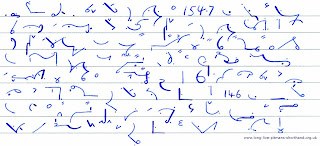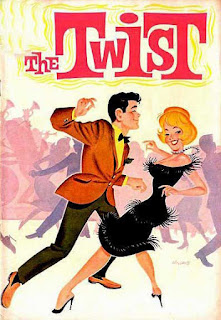Reasons why it's worth keeping up your shorthand skills

It seems like an ancient craft now, akin to basket-weaving or the making of quills, but I learned to write Pitman shorthand when training for my first career as a medical secretary in 1979. (I also learned to type on traditional typewriters with their clatter and bash and 'ting' as the carriage went back and forth when one started a new line.) It's hard to imagine now, but in my role as a medical secretary, I would walk into a doctor's consulting room after he (in the 1980s, invariably 'he') had finished the morning surgery. He'd dictate fifteen or so letters to the patients' general practitioners or to other consultants, reporting on what he'd found or on a diagnosis, or referring patients on, and I'd scribble them down in shorthand in my little notebook in squiggles and dashes and lines and dots. Inevitably, mistakes were made in transcribing the letters back. Doctors often dictated so quickly - some while pacing up and down while eating...

